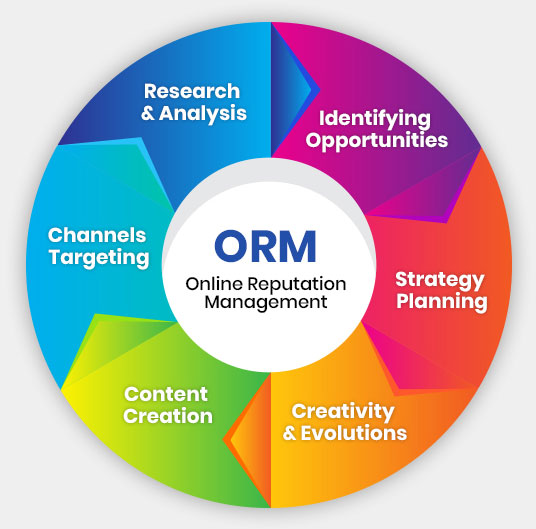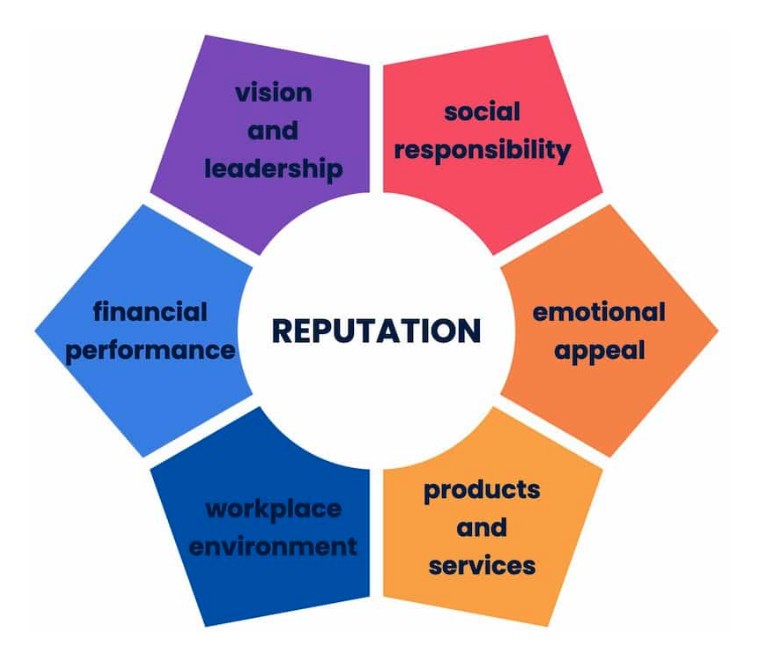From Situation to Chance: Leveraging Reputation Monitoring in Times of Difficulty
In today's interconnected and fast-paced world, people and organizations encounter the consistent danger of situations and misfortunes that can potentially harm their hard-earned reputation. Amidst the turmoil exists an opportunity - a chance to not only endure however thrive in the face of adversity. Track record administration plays a vital role in navigating these tough times, guaranteeing that the damages is minimized and the capacity for development is made best use of. In this discussion, we will discover the art of leveraging reputation administration throughout times of situation, providing understandings and approaches that can transform a difficult circumstance right into a tipping stone for success. Prepare to discover the tricks behind transforming situation into opportunity, as we dig right into study and analyze the power of social networks fit online reputation.
Recognizing Track Record Monitoring
Recognizing online reputation monitoring is crucial for people and businesses seeking to keep a positive public image and mitigate potential damages in times of hardship. Online reputation monitoring includes the methods and methods utilized to shape, preserve, and secure an individual's or company's credibility (Reputation Management). It involves proactively monitoring what is being said about the specific or service, both online and offline, and responding suitably to any type of negative or destructive details
In today's digital age, where details spreads rapidly and can have a long-term impact, reputation monitoring has come to be even extra essential. Social media platforms, on-line evaluation websites, and news electrical outlets can rapidly intensify any adverse publicity or objection, potentially creating significant damage to an individual's or organization's track record. By recognizing online reputation administration, individuals and organizations can properly navigate these challenges and proactively deal with any kind of problems that may occur.
Key elements of credibility monitoring include checking on-line discusses and evaluates, engaging with consumers or stakeholders, attending to adverse responses or objection in a expert and prompt fashion, and proactively managing online profiles and content. Furthermore, businesses and people ought to make every effort to build a solid online reputation by delivering on assurances, providing outstanding client service, and participating in moral practices.
Identifying Misfortunes and Dilemma Circumstances

To determine these hardships and crisis circumstances, organizations require to establish a durable monitoring and very early warning system. This entails actively keeping track of typical media, social networks platforms, on the internet discussion forums, and other relevant resources for any possible risks or adverse conversations associated with the company. Reputation Management. By staying aggressive and watchful, organizations can rapidly react and detect to emerging problems, stopping them from spiraling uncontrollable
In addition, organizations ought to likewise perform regular danger analyses to identify prospective susceptabilities and powerlessness in their operations. When they do occur, this enables them to establish backup strategies and methods to address situations effectively. By being prepared and positive in determining misfortunes and situation circumstances, companies can better safeguard their reputation, preserve stakeholder depend on, and eventually turn misfortune right into chance.
Building a Situation Feedback Approach
Creating a reliable crisis response approach is crucial for companies to efficiently browse via difficulty and shield their online reputation. In times of situation, companies should be prepared to respond rapidly and effectively to alleviate the influence on their stakeholders and keep public depend on. Developing a crisis reaction technique involves numerous crucial steps.
Firstly, organizations require to establish a crisis monitoring group consisted of essential people from different departments. This team should be accountable for implementing the situation and creating action strategy. They need to have a clear understanding of the organization's worths, objectives, and key stakeholders.
Secondly, organizations must conduct a comprehensive threat analysis to identify possible situations that could occur and examine their potential effect. This involves evaluating outside and internal factors that can result in a situation, such as functional disturbances, monetary concerns, or reputational dangers.
Next, organizations should establish an interaction plan that details how they will connect with their stakeholders during a crisis. This strategy must consist of regular and clear messaging, along with networks and systems to get to different audiences.
Additionally, organizations should develop methods for monitoring and reviewing the situation feedback strategy. This consists of regularly upgrading the strategy and assessing to guarantee like this its performance and making necessary modifications based on lessons gained from previous dilemmas.

Utilizing Social Network in Credibility Management
Social media site has actually ended up being an indispensable device for companies in handling their online reputation during times of adversity. With the rise of social networking systems such as Facebook, Twitter, and Instagram, organizations now have the possibility to straight engage with their stakeholders and deal with any problems or issues that might arise.
During times of crisis, social networks enables companies to rapidly distribute information, offer updates, and interact their side of the story. By proactively getting involved in social media sites conversations, companies can check public view, address misinformation, and demonstrate transparency and accountability.
Among the crucial advantages of using social media sites in track record management is the capability to reach a large audience in real-time - Reputation Management. With social media platforms, organizations can involve with stakeholders from all over the world, despite geographical borders. This allows them to not only handle their reputation in your area yet additionally on an international scale
One more benefit of using social media sites is the interactive nature of these systems. Organizations can actively listen to their audience, react to their problems, and show a desire to solve problems. This level of involvement assists construct trust fund and reputation, which are critical for reputation monitoring.
Nonetheless, it is essential for companies to come close to social media with caution. Missteps or inappropriate actions can swiftly rise a situation and more damages the company's online reputation. It is necessary for companies to have a distinct social media strategy in place, with clear standards on exactly how to attend to dilemma scenarios.
Turning Situation Into Possibility: Instance Researches
A number of organizations have efficiently transformed dilemmas into opportunities by properly managing their reputation and carrying out critical activities. These study highlight the value of proactive credibility administration throughout times of adversity.
One such study is the Tylenol crisis in 1982. When seven people passed away after taking in cyanide-laced Tylenol capsules, Johnson & Johnson took immediate action to shield its online reputation. The company swiftly recalled 31 million bottles of Tylenol, reestablished the item with tamper-proof product packaging, and applied a transparent interaction approach. By focusing on customer safety and openly addressing the crisis, Johnson & Johnson not just gained back consumer count on however likewise set new market criteria for product safety and security.
One more notable instance is the Domino's Pizza dilemma in 2009. In action, Domino's immediately apologized and released a thorough online project to address the dilemma.
These study demonstrate the value of speedy activity, openness, and efficient interaction in turning situations into possibilities. By successfully managing learn the facts here now their track record and implementing calculated actions, organizations can not just mitigate the negative impacts of a situation yet likewise arise more powerful and much more resistant.
Conclusion
In times of difficulty, reputation management plays a vital duty in companies' survival and success. By recognizing the original site importance of reputation administration, determining situation circumstances, and structure efficient action approaches, firms can effectively browse with hard times. Leveraging social media sites as a device in credibility administration can further boost companies' capability to attend to dilemmas and communicate with stakeholders. With aggressive and critical track record administration, dilemmas can be transformed into chances for development and renovation.
By being prepared and proactive in recognizing misfortunes and dilemma situations, organizations can much better safeguard their reputation, keep stakeholder count on, and ultimately turn misfortune into possibility.
Developing a reliable crisis feedback technique is crucial for companies to successfully browse with adversity and protect their credibility. Errors or unsuitable feedbacks can promptly rise a crisis and more damage the company's track record. Leveraging social media as a device in reputation administration can further improve companies' capacity to deal with dilemmas and communicate with stakeholders. With tactical and aggressive credibility monitoring, situations can be turned into possibilities for development and improvement.